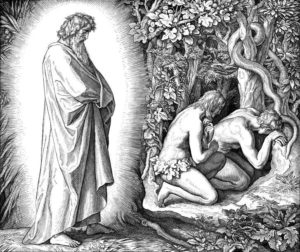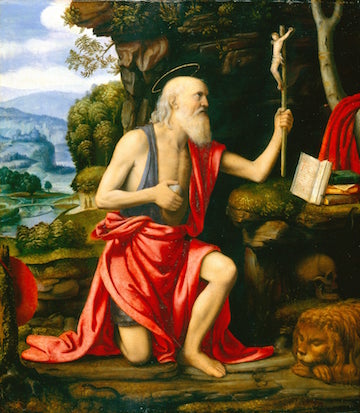Where Hell Begins (Part 2)
The word hell has its origin from the old Norse word hel, which means hidden. It connotes a separation of things that should be together, which necessarily carries pain and suffering.
 After Adam and Eve sinned, they hid themselves from God. Sounds strange, but something had gone very wrong and so they separated themselves from Him. Criminals hide in order to not be found. Their newfound knowledge of good and evil now included the bitter taste of hell.
After Adam and Eve sinned, they hid themselves from God. Sounds strange, but something had gone very wrong and so they separated themselves from Him. Criminals hide in order to not be found. Their newfound knowledge of good and evil now included the bitter taste of hell.
God is hidden also, but God does not hide the same way we do. Children who play “hide and seek” with their parents actually want to be found; staying hidden for hours (or minutes) on end is no fun, and so they will give themselves away for the “thrill” of the chase back to base.
In a certain sense, this is how God hides from us; He actually leaves Himself to be discovered and pursued and obtained. While He does put conditions on this – we have to want to look and pursue and obtain – the idea of man being hidden is abhorrent to Him. After all, He went looking and calling out (cf. Gen. 3:8). He does not will hell for man.
In fact, there is never a point in time when God leaves man to himself.
When God created the universe, He established man in a state of grace – that is, friendship with Him. There was a familiarity between God and man who was made in His image. No sooner did man sin than God immediately promised a Redeemer who would save him from it (cf. Gen. 3:15).

He then makes a covenant with Abraham and his offspring, chooses a nation to specially dwell with as a prelude to the redemption, gives the Law to Moses, arrives in Person at the Incarnation, and finally, after His Ascension, sends the Holy Ghost upon His Church with a mission to baptize and make disciples of all nations, dwelling in the Tabernacles of our churches until the end of time.
God never abandons man. For God, it was all about forgiveness, reconciliation and restoration, even though man was to learn through the centuries the painful lesson of what separation from God was like, so that man would not want this separation either, be it in this life or in the next.
Although God was completely free and justified to condemn humanity to an eternity of separation, this was not to be. And this is what Advent and Christmas are about: the coming of a Savior and ending hell in our lives, the hell that begins by turning from the forgiveness and reconciliation God extends, demonstrated by the great lengths He took by becoming man and hanging on a Cross, something almost unbelievable if it was not true.
It seems then that forgiveness and faith are linked.
God’s response to man’s sin was to first make possible a means of forgiveness; only after that does He demand faith in consequence of this new arrangement, far more wondrous than creation itself.
 Forgiveness is the first prerequisite for eternal life; there is no one in heaven who has not been forgiven from sin and has not realized their need for it (in our Lady’s case, although preserved from sin, this was on account of Christ’s merits on the Cross). Therefore, the unwillingness to accept this, or to think it is not possible perhaps for oneself, or the refusal to forgive another all militate against faith and begin to create a hell in one’s soul and life.
Forgiveness is the first prerequisite for eternal life; there is no one in heaven who has not been forgiven from sin and has not realized their need for it (in our Lady’s case, although preserved from sin, this was on account of Christ’s merits on the Cross). Therefore, the unwillingness to accept this, or to think it is not possible perhaps for oneself, or the refusal to forgive another all militate against faith and begin to create a hell in one’s soul and life.
As an author astutely puts it: “Unforgiveness locks us into unbelief, and unbelief deepens unforgiveness. It revolves endlessly unless we make a stop, unless we forgive.”
Or maybe it is easier to ignore all this and just be “spiritual”….
To be continued….
December 16, 2020








